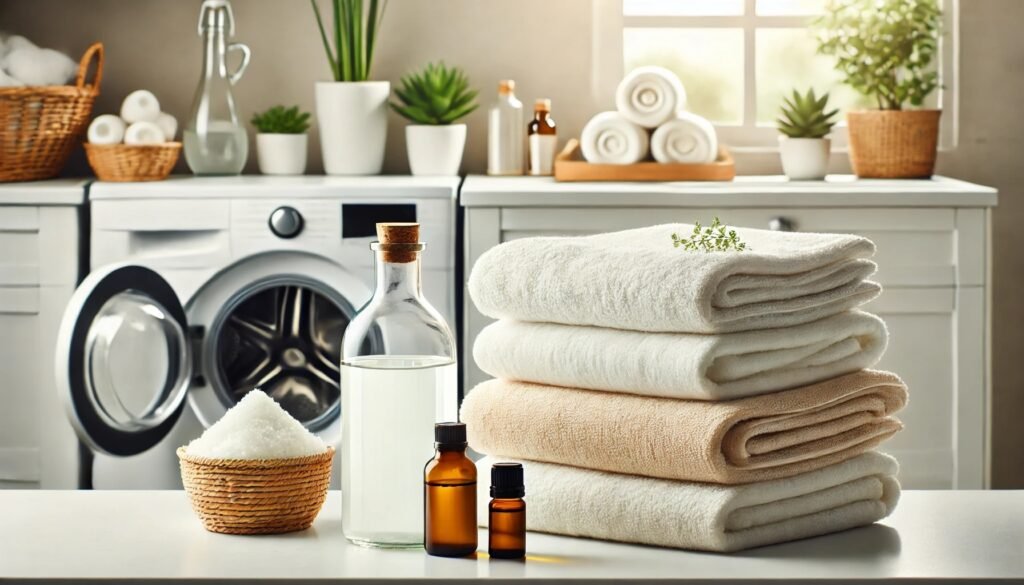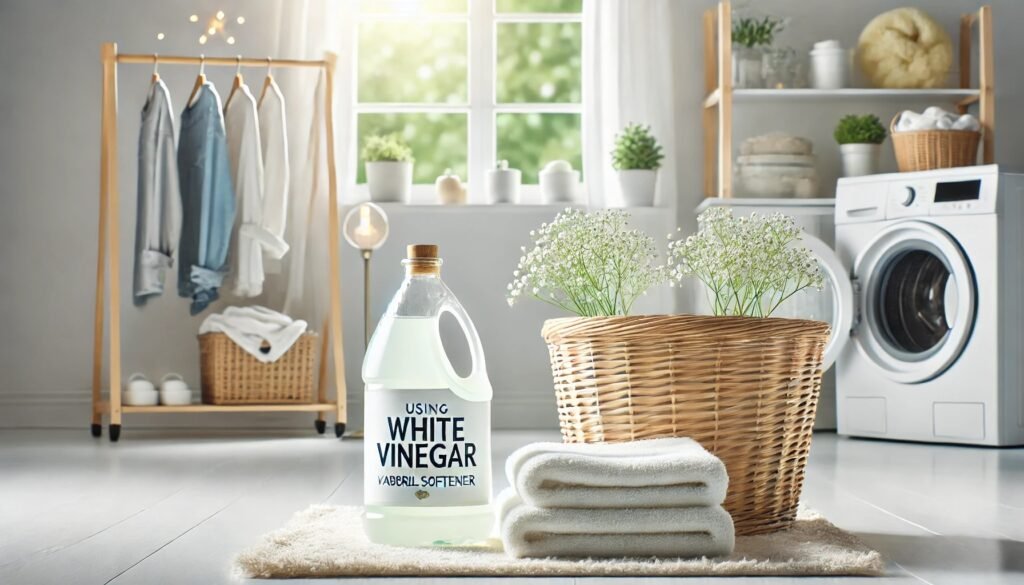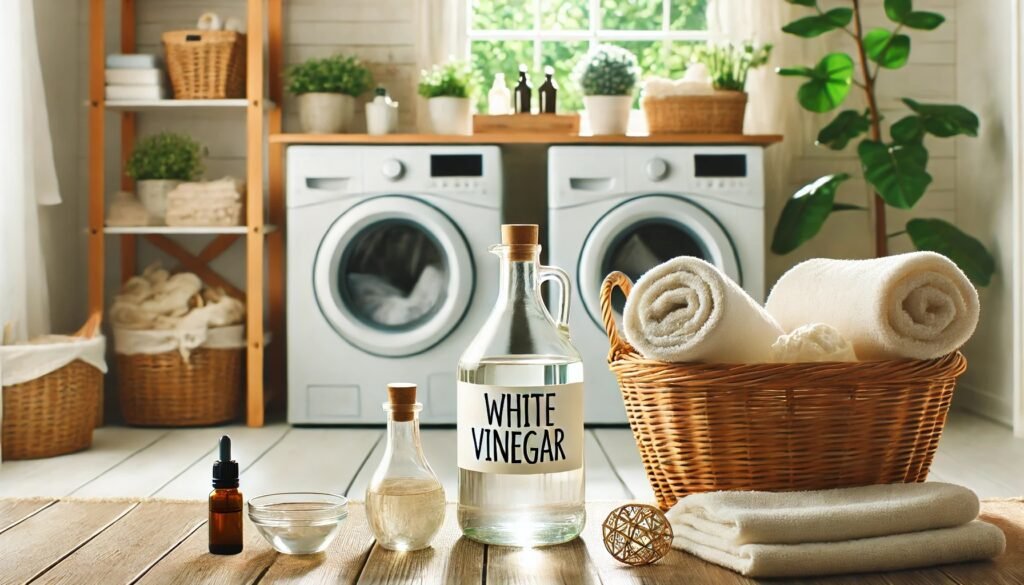Switching to white vinegar as a fabric softener is a cost-effective, eco-friendly choice for keeping clothes soft and fresh. Unlike conventional softeners, vinegar offers a chemical-free solution that prevents residue buildup and is gentle on both fabrics and washing machines. Inspired by Clean Mama’s guide, here’s how to incorporate white vinegar into your laundry routine for best results.
Why Choose White Vinegar as a Natural Fabric Softener?
Using white vinegar as a fabric softener has multiple advantages:
•Chemical-Free and Safe: White vinegar is natural, containing no harmful additives that may damage fabrics. Read more about the benefits of vinegar in household cleaning from Good Housekeeping.
•Residue-Free Cleaning: Unlike commercial softeners, vinegar prevents buildup that can dull fabric colors over time.
•Environmentally Friendly: White vinegar is biodegradable, making it a sustainable option for eco-conscious households. For more tips on eco-friendly cleaning, see the Environmental Working Group’s guide to safe household products.

Step-by-Step Guide to Using White Vinegar as a Fabric Softener
Incorporate white vinegar in your laundry routine with these simple steps:
•Measure the Vinegar: Add 1/4 cup of white vinegar to your washing machine’s fabric softener compartment.
•Add Essential Oils (Optional): If you prefer a mild scent, add a few drops of essential oils (e.g., lavender or lemon) to the vinegar.
•Run the Rinse Cycle: The vinegar will work to soften fabrics, reduce odors, and leave your clothes feeling fresh without any lingering vinegar smell.
Benefits of Using White Vinegar in Your Laundry Routine
Natural Softening Power: Vinegar effectively softens clothes and prevents static cling.
Odor Control: It neutralizes musty odors that can linger in fabrics, especially towels and workout gear.
Machine Maintenance: Regular use of vinegar keeps the washing machine clean, preventing soap scum buildup and improving its longevity.
Laundry Tips for Enhanced Results with White Vinegar
•Boost with Wool Dryer Balls: Add wool dryer balls to the dryer along with your laundry to enhance softness and reduce drying time.
•Mix with Baking Soda for Extra Freshness: For heavily soiled clothes, add 1/4 cup of baking soda in addition to vinegar for a deeper clean. See The Spruce’s guide on vinegar and baking soda for effective ways to use this combination.
•Avoid Bleach and Vinegar Together: Never mix bleach with vinegar, as it produces toxic fumes. Use one or the other, but not both in the same load.

FAQs on Using White Vinegar as a Fabric Softener
Does vinegar harm clothing fabrics?
No, diluted vinegar is safe for most types of fabrics and helps extend the life of clothing by preventing chemical buildup.
Will clothes smell like vinegar after washing?
No, the vinegar smell dissipates during the rinse cycle, leaving clothes fresh and odor-free.
Is vinegar suitable for all fabrics?
White vinegar is safe for most fabrics, but it’s best to test a small area on delicate materials.
How much vinegar should I use per load?
Typically, 1/4 cup is sufficient, but you may adjust based on load size or personal preference.
Can vinegar soften towels?
Yes, vinegar is excellent for towels, as it helps restore absorbency by removing residue from fabric softeners.
Is white vinegar safe for high-efficiency (HE) washers?
Yes, vinegar is safe for HE washers and can actually help maintain them by preventing buildup.
Does vinegar reduce static cling?
Yes, vinegar acts as a natural anti-static agent, especially when combined with wool dryer balls in the drying cycle.
How often should I use vinegar in my laundry?
You can use vinegar in every wash for regular softening benefits, or periodically to keep fabrics fresh.
Can I use apple cider vinegar instead of white vinegar?
White vinegar is recommended due to its clear color and lack of residue; apple cider vinegar may stain fabrics.
Does vinegar help remove detergent residue?
Yes, vinegar is effective at dissolving detergent buildup, leaving fabrics cleaner and more comfortable.
For more sustainable laundry tips, check out the full guide at Clean Mama’s Everyday Tips on Using Vinegar as a Fabric Softener.




